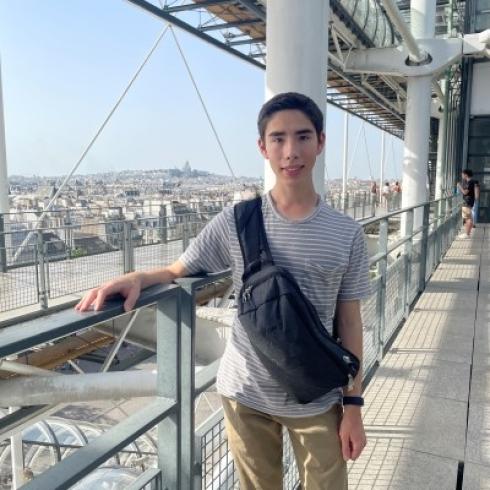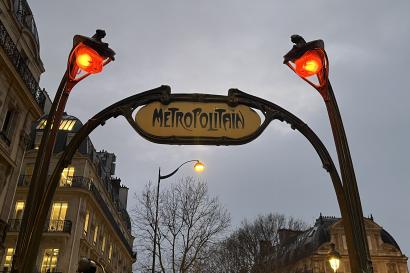When I first landed in Paris more than two months ago, I was confused, jet lagged, tired and anxious. I knew how to speak French, but had only practiced in a classroom environment. I had not been to France in several years, and had never traveled internationally without my family. I tiredly stumbled from the airplane, to a taxi, to my IES Abroad apartment.
Since that day, I have been to nearly every important landmark and museum in Paris. I have eaten at dozens of cafes and boulangeries. I have memorized the Paris subway map by heart, and I have become comfortable going about the obligations of everyday life while speaking French. The result is that Paris no longer feels like a foreigin city to me. I know how the city operates in the same way as I understand my hometown. I have figured out which restaurants I like, and what activities I would recommend to someone who wants to visit for a few days. Some of this comes from the exciting highlights of the trip such as visiting the beautiful Chateau de Versailles, going to Disneyland Paris with my friends, eating a delicious birthday dinner in Le Marais and taking a selfie in front of the Mona Lisa. However, much of this familiarity also comes from the more mundane experiences I had in Paris.
When you live somewhere for several weeks, it is necessary to do laundry, go grocery shopping, establish a daily commute and replace toiletries and school supplies. There are also habits that I started adopting that are different from the ones at home. I had to be careful about the time of day when I used the stove, as my apartment did not have air conditioning and it was summer. I also had to rely on public transit, which meant leaving earlier for classes and events than I would at home in order to be on time. When I am far away from home, I typically do not have to think about these things, but I did in Paris, which strangely gave it a home-like feeling.
I realized much of this after the fact. During the three weeks following the end of my IES Abroad program, I traveled alone throughout southern France and Italy, eventually flying out of Rome. When I crossed the border from France into Italy, it hit me that while I know how to get around easily in France, I was a true foreigner in Italy. I do not speak any Italian and I know less about Italian culture than I know about French culture.
France—and Paris in particular—is not a place where I have any family or ancestry, but compared to most other places, it feels familiar. There is a stereotype that French people are rude, especially to Americans. While I found many of them less outgoing than people where I’m from (the southern United States), they seemed welcoming to me and my fellow students because we spoke French and understood the cultural differences. People working in restaurants and museums often complimented my French, and I was able to hold real conversations with Parisians that went beyond exchanging greetings. I am not sure when I will have the chance to return to Paris, but one thing is for sure: When I do, I am confident that Paris and the rest of France will welcome me with a familiarity second only to my own home. Until then, à bientôt!

Sam Kornylak
Bonjour! My name is Sam Kornylak and I am from Chapel Hill, North Carolina. I'm currently studying economics (with an environmental science minor) at the University of North Carolina-Chapel Hill. After college, I hope to go into international development, so I obviously love learning about other parts of the world and the people and geography there. This summer, I will study abroad in Paris with IES Abroad, and I am looking forward to sharing that experience with others through the IES blog. I have a passion for writing (I'm a staff writer for The Daily Tar Heel), traveling, reading, and meeting new people, and these are all things I hope to do while I'm in France.







